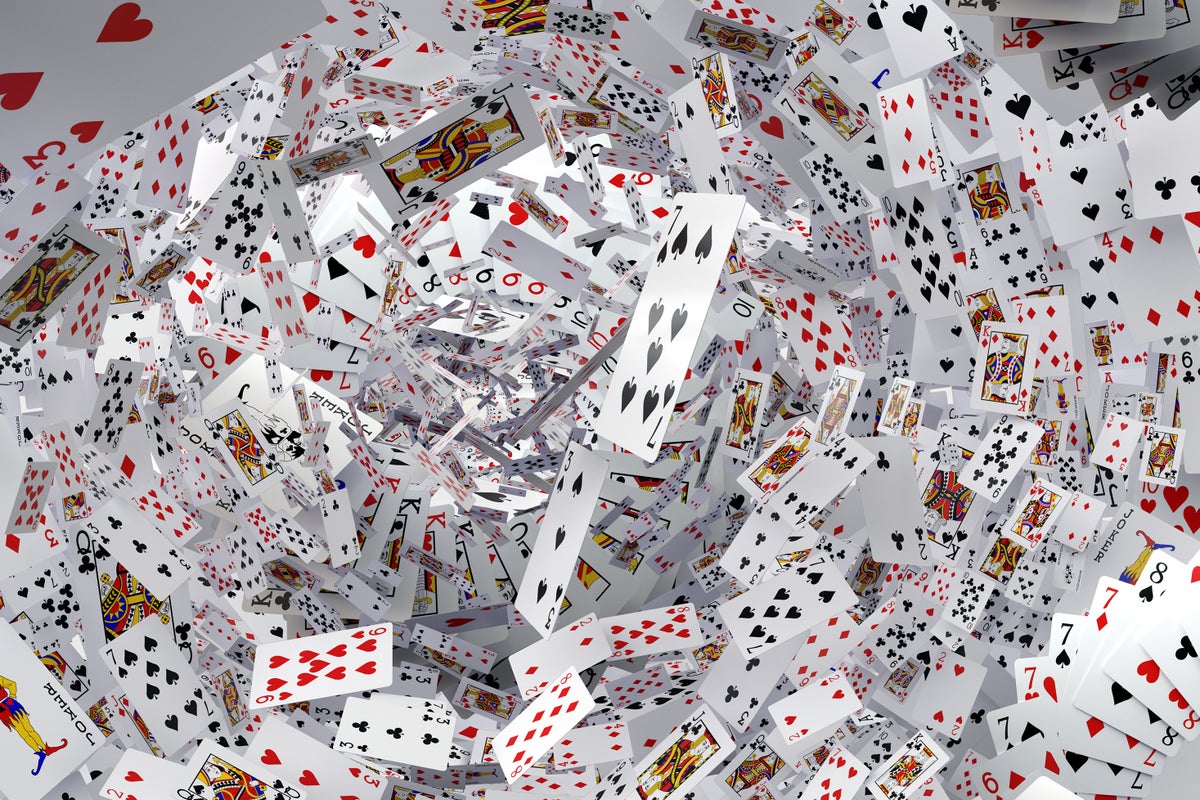
"If you've ever shuffled a deck of playing cards, you've most likely created a unique deck. That is, you're probably the only person who has ever arranged the cards in precisely that order. Although this claim sounds incredible, it's a great illustration of how quickly large numbers can creep into everyday situationswith occasionally challenging consequences, as the developers of an online poker game painfully discovered in the late 1990s."
"The mathematics of card shuffling is quite easy to explain. To calculate how many arrangements 52 playing cards can have, you must go through all the possible shuffles. So logically, one of the 52 cards is placed on top, and once that's determined, there are only 51 possibilities for the card below it. The next card has only 50 possible options, and so on. A 52-card deck can therefore be arranged in 52 51 50 ... 2 1 = 52! different ways. If you do the multiplication and round the answer, you will get a number with 67 zeros."
"That's more than a quadrillion times as many ways to arrange these cards as there are atoms on Earth. On supporting science journalism If you're enjoying this article, consider supporting our award-winning journalism by subscribing. By purchasing a subscription you are helping to ensure the future of impactful stories about the discoveries and ideas shaping our world today. So clearly there are many, many different ways to arrange 52 playing cards. And yet to find out how likely it is that another person in the world will randomly create the same sequence of cards by shuffling, it's not enough to simply calculate 1 / 52! That number simply indicates how likely it is to get one very specific shuffle of cards."
Shuffling 52 playing cards yields 52! possible orders by choosing one card for each position in sequence. The product 52×51×50×…×1 equals a value with 67 zeros, vastly larger than counts encountered in everyday life and far exceeding the number of atoms on Earth. The probability of any one specific ordering is 1/52!, but the chance that two or more people independently produce the same ordering requires collision-probability reasoning akin to the birthday paradox. Practical consequences of these large-number probabilities affected an online poker game's developers in the late 1990s.
Read at www.scientificamerican.com
Unable to calculate read time
Collection
[
|
...
]